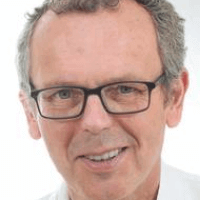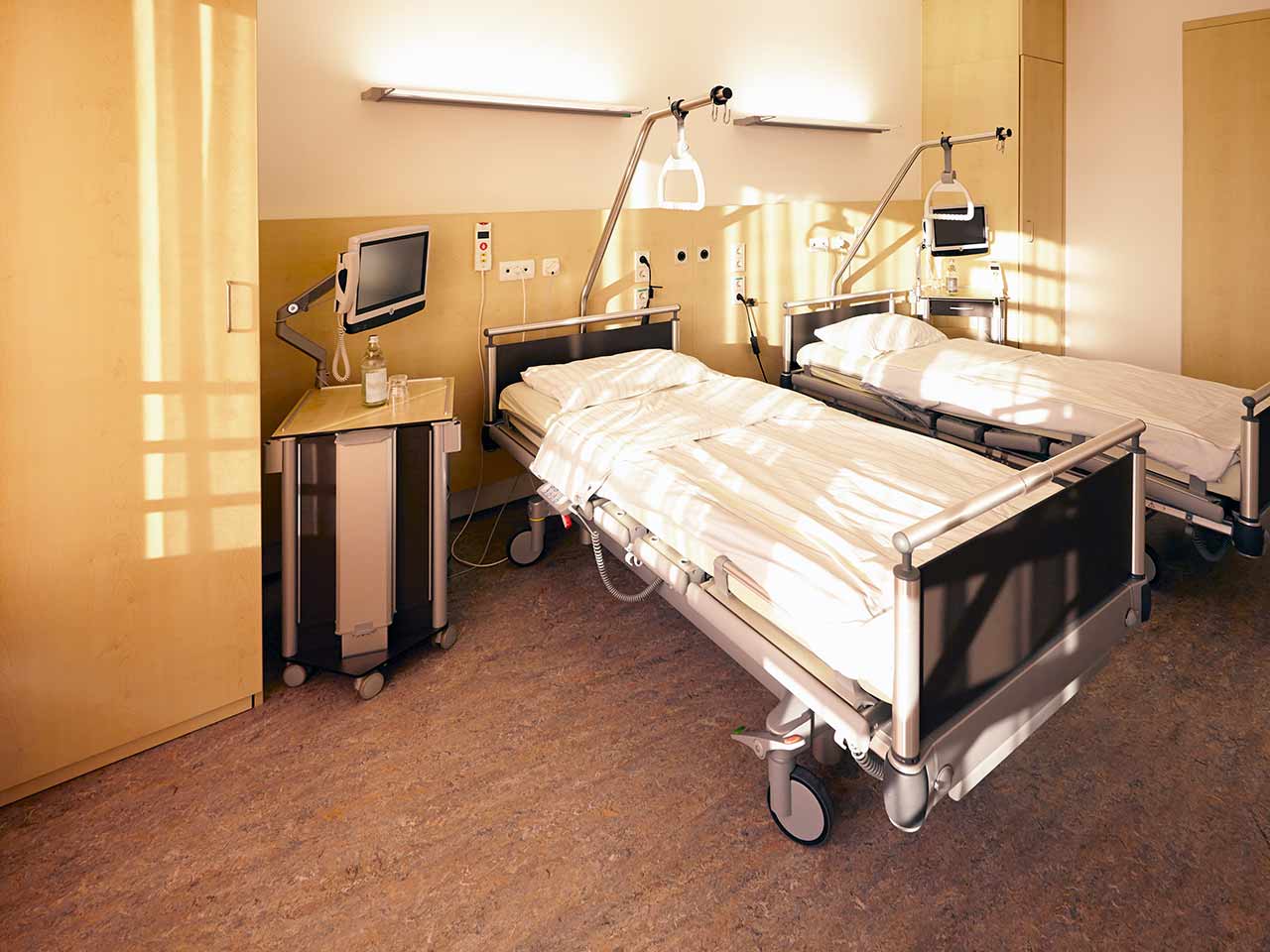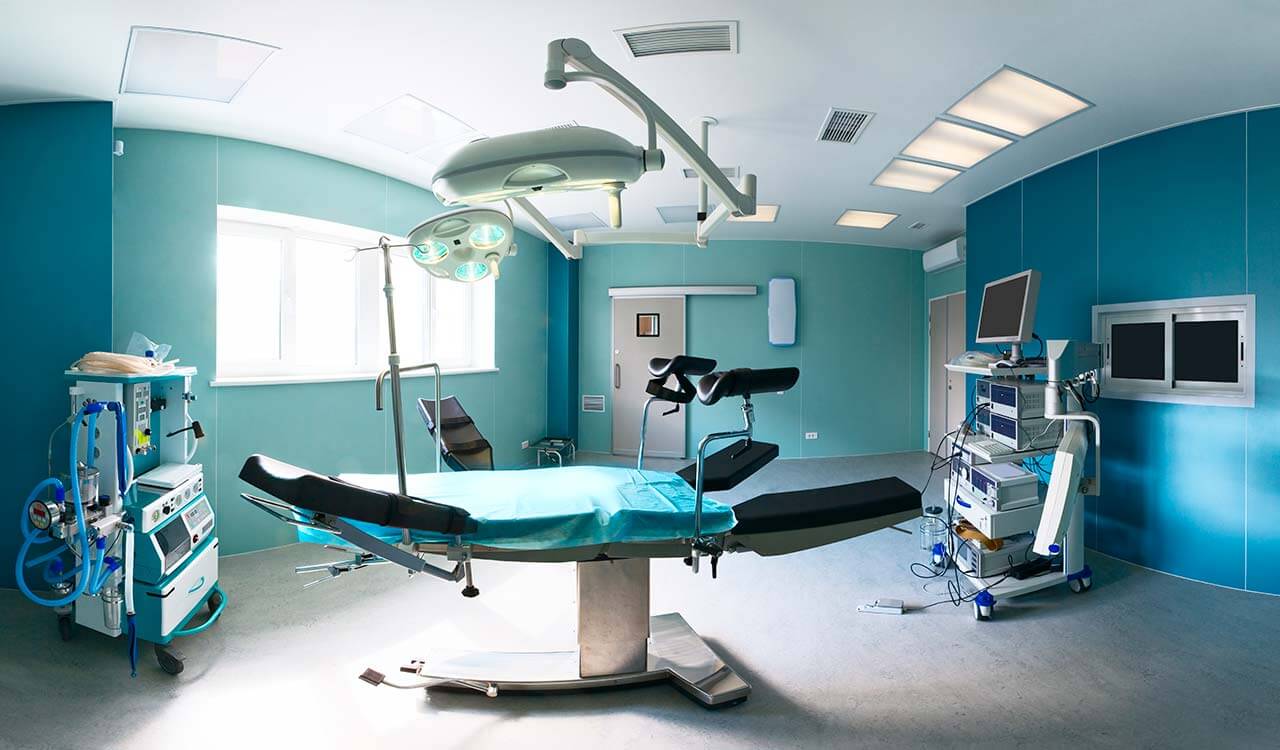
The program includes:
- Initial presentation in the clinic
- clinical history taking
- review of medical records
- physical examination
- laboratory tests:
- complete blood count
- biochemical blood analysis
- blood coagulation analysis (aPTT, PT, INR)
- inflammation indicators (CRP, ESR)
- metabolic analysis of blood
- cardiovascular disease risk markers
- kidney function test (creatinine, urea)
- color doppler echocardiography
- color doppler sonography of cerebral and peripheral vessels
- abdominal aorta duplex
- CT angiography (on indication 1200 €)
- nursing services
- consultation of related specialists
- consultation of the chief physician and all leading experts
- development of individual treatment plan
- written statement
Required documents
- Medical records
- Ultrasound scan, MR/CT-angiography (if available)
Service
You may also book:
 BookingHealth Price from:
BookingHealth Price from:
About the department
The Department of Vascular Surgery at the Helios Hospital Hildesheim offers all the options of modern medicine for the effective treatment of vascular diseases. The main areas of clinical activity of the medical facility include the treatment of aneurysms, carotid artery stenoses and occlusions, circulatory disorders, varicose veins, as well as surgical interventions for the formation of dialysis access and the placement of port systems. In cooperation with the Department of Cardiology, the department also performs operations for the implantation of pacemakers and defibrillators. The department's operating rooms are equipped with the latest technology, and meet modern standards of hygiene and safety. Special attention should be paid to a highly professional medical team, which makes every effort to restore the health of patients with vascular pathologies. The department is headed by Dr. med. Kai Röttger.
The department's doctors are proud of their rich and successful experience in the surgical treatment of abdominal aortic aneurysms. Aneurysms (abnormal protrusions of the blood vessel wall or its thinning) are one of the most common pathologies in vascular surgery. Without timely treatment, they can be fatal. As a rule, the patient does not experience any symptoms and may not be aware of the presence of an aneurysm for a long time. In most cases, aneurysms are detected by chance, during ultrasound or X-ray examinations. Computed tomography (CT) may be needed to confirm the diagnosis. In addition, the CT scan allows the doctors to assess the condition of the vessel affected by the aneurysm and determine whether the patient needs surgery. The department's surgical options include bypass surgery with removal of the affected area of the vessel and its replacement with a prosthesis, as well as stent implantation using endovascular surgical techniques.
A large number of operations performed in the department are interventions for carotid artery stenosis or obstruction. These pathological conditions are also often asymptomatic, but if left untreated, patients are at increased risk of stroke – one of the most common causes of death worldwide. To treat carotid artery stenoses and obstructions, the department's vascular surgeons perform both classical open operations and sparing catheter procedures for vascular stenting. These surgeries are performed using neuromonitoring systems, which allows controlling the patient's brain activity during the operation. The optimal treatment is selected individually, after a thorough study of the patient's clinical data.
The competence of the department's surgeons also includes the treatment of circulatory disorders. Both open and endovascular operations using catheters are performed here. The department's specialists quite often resort to hybrid surgery, which combines open and endovascular surgical techniques.
Another important focus of the department's medical team is on the treatment of varicose veins. At the early stages of the pathology, conservative treatment (compression therapy) is usually used, while more advanced cases require an invasive intervention. The service range in this area includes classical surgical interventions, sclerotherapy and radiofrequency therapy.
The department's range of surgical services includes:
- Surgery for abdominal aortic aneurysm
- Surgery for carotid artery stenoses and obstructions
- Surgery for peripheral circulatory disorders
- Surgery for the formation of dialysis access
- Surgery for the implantation of port systems
- Surgery for the implantation of pacemakers and defibrillators (in cooperation with cardiologists)
- Other medical services
Curriculum vitae
Higher Education and Professional Career
- 1982 - 1988 Study of Human Medicine at the Hannover Medical School.
- 1989 Doctoral Degree in Medicine (research work on replantation surgery for complex amputation hand injuries), Surgery Center at the Hannover Medical School.
- 1988 - 1995 Specialized surgical training, Hospital Marien Osnabrueck, as well as qualification in Emergency Medical Care.
- 1995 - 1998 Specialized training in Vascular Surgery, Westerstede.
- Since August 1998 Creation and management of the interdisciplinary Center for Vascular Surgery Hildesheim-Salzgitter certified by the German Societies of Vascular Surgery and Vascular Medicine, Radiology and Angiology; board certification in Endovascular Surgery.
- 2021 Advanced training, University of Applied Sciences Mittelhessen Hesse.
- Since 2015 Chief Physician of the Department of Vascular Surgery at the Helios Hospital Hildesheim.
Clinical Interests
- Endovascular treatment of abdominal aortic aneurysms.
- Operations to form dialysis access (bypass, catheter placement).
- Bypass surgery for circulatory disorders in the lower limbs.
- Implantation of pacemakers (in cooperation with the Department of Cardiology).
- Surgical interventions on the carotid artery.
Photo of the doctor: (c) Helios Kliniken GmbH
About hospital
The Helios Hospital Hildesheim positions itself as an advanced provider of high-quality medical services at the European level. The medical facility is an Academic Hospital of the Hannover Medical School, thanks to which it can successfully introduce the very latest medical achievements into clinical practice. The hospital is distinguished by the excellent quality of diagnostics, highly effective treatment of pathologies of any severity and the best patient care based on understanding and humane attitude. The history of the medical complex dates back to 1838, so it carefully honors traditions, but at the same time the hospital actively uses innovative diagnostic and treatment methods. The medical team of the hospital consists of more than 1,450 people. The hospital employs highly qualified doctors who are rightfully proud of their treatment outcomes.
The medical facility has 579 beds. The team of doctors working at the hospital treats more than 28,000 inpatients and about 80,000 outpatients every year. The patients from foreign countries often undergo diagnostics and treatment in the hospital, which confirms the excellent reputation of the medical center in the international arena.
The hospital offers highly specialized departments with different medical focuses, including oncology, cardiology, gastroenterology, gynecology, dermatology, otolaryngology, general and abdominal surgery, plastic and aesthetic surgery, traumatology, etc. Many medical fields are awarded with prestigious certificates, including German Cancer Society (DKG) certification, IQM certification, and others.
Photo: (с) depositphotos
Accommodation in hospital
Patients rooms
The patients of the Helios Hospital Hildesheim live in spacious and light rooms. The furnishings of a standard patient room includes an automatically adjustable bed with an orthopedic mattress, a bedside table, and a wardrobe for storing things. All patient rooms have telephone, radio and TV, as well as free Wi-Fi. For maximum convenience of patients, each room has an ensuite bathroom with shower and toilet.
If desired, the patient can stay in an enhanced-comfort room. Such rooms are distinguished by a more sophisticated design, and are additionally equipped with a safe, a minifridge and upholstered furniture.
Meals and Menus
The patients of the hospital are offered tasty and varied meals. Diet and vegetarian menus are also available. If the patient follows a special diet recommended by the attending physician, he will be provided with food cooked from approved products.
Breakfast is served buffet style: eggs, various types of cheese, sausage, buns, jam, vegetables. There are three set menus to choose from for lunch. Dinner is also served buffet style.
In addition, the hospital has a cozy cafe called Leckeria where one can have a delicious snack. The range of dishes includes light salads, hearty set meals, snacks, sandwiches, cakes, as well as tea, coffee and soft drinks. The terrace is open in the summertime.
Further details
Standard rooms include:
Television
All patient rooms have a TV set. The TV can be used with headphones – the patients can use their own headphones or ask for the headphones from the staff.
Religion
The patient can talk with a Christian priest at any time. Divine services are held every Sunday at 10 am (on the ground floor).
Other religious services are available upon request.
Accompanying person
During the inpatient program, the accompanying person can stay with the patient in a patient room or at a hotel of his choice. Our managers will help you choose the most suitable option.
Hotel
During the outpatient program, the patient can stay at a hotel of his choice. Our managers will help you choose the most suitable option.




